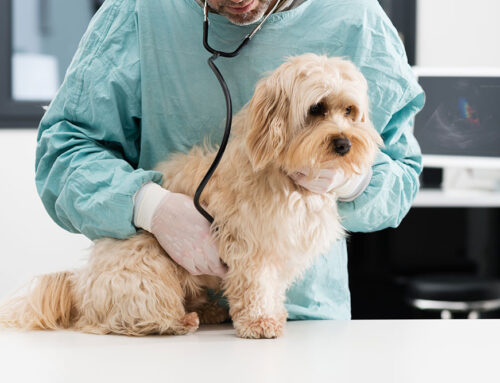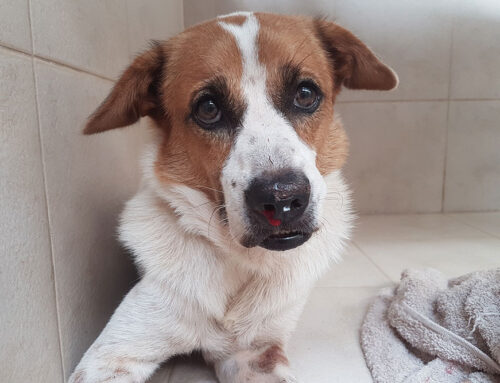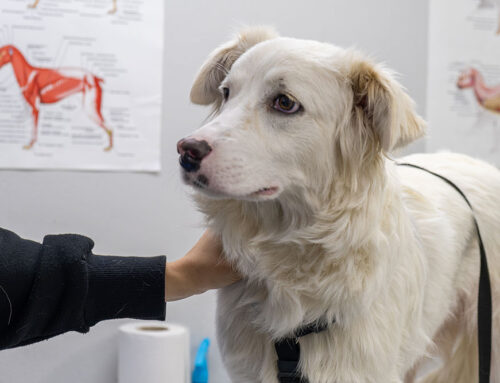Bringing home a new puppy or kitten is an exciting time—but along with the joy and cuddles comes a new level of responsibility. Young pets are especially prone to accidents, illnesses, and other health concerns due to their fragile immune systems and curious nature. Knowing how to recognize the signs of an emergency and when to act can make all the difference in protecting your pet’s health—and potentially saving their life.
If you’re ever unsure, it’s always best to err on the side of caution and contact Commonwealth Animal Care.
Why Puppies and Kittens Are More Vulnerable
Young animals are not just smaller versions of adults—they’re physiologically and behaviorally different in ways that make them more susceptible to emergencies:
- Immature immune systems mean they’re less able to fight off infections.
- Rapid metabolism can cause them to crash quickly during illness or if they miss a meal.
- Soft bones and tissues make them more prone to injury from rough play or accidental falls.
- Endless curiosity leads them to chew, eat, and explore things that could be dangerous.
Resources like Preventive Behavioral Care: Setting Your Pup Up for Success and Nurturing Your Feline Friend can help you get off to a safe start.
Recognizing the Most Common Emergencies in Puppies & Kittens
Choking and Breathing Trouble
If your puppy or kitten suddenly begins gagging, coughing, pawing at their mouth, or struggling to breathe, they may be choking on a toy, treat, or foreign object.
What to do:
- Check their mouth carefully, but don’t attempt to retrieve the object if it’s deep—you could push it farther down.
- Perform the Heimlich maneuver if necessary.
- Seek veterinary care immediately.
Learn the Heimlich technique for dogs
Toxic Ingestions and Poisoning
Puppies and kittens will chew on almost anything. Unfortunately, many common foods, plants, and household items are toxic.
High-risk substances include:
- Chocolate, grapes, xylitol (found in sugar-free gum), onions
- Human medications like ibuprofen or antidepressants
- Cleaning supplies, rodenticides, and antifreeze
- Plants like lilies (especially toxic to cats), sago palm, and aloe
If you suspect ingestion of something harmful, don’t wait. Call ASPCA Poison Control immediately.
Severe Vomiting or Diarrhea
While occasional digestive upset can happen, repeated vomiting or diarrhea can lead to dehydration, electrolyte imbalance, and even life-threatening conditions like parvovirus or intestinal obstruction.
Call your vet if:
- Your pet vomits multiple times in a short span
- There is blood in the vomit or stool
- Your pet becomes lethargic, has sunken eyes, or dry gums
Need help doing a quick home exam? Here’s a home health guide from the Humane Society.
Hypoglycemia (Low Blood Sugar)
Small-breed puppies, kittens not eating well, or animals recovering from illness are at risk of hypoglycemia—a rapid drop in blood sugar that can lead to collapse.
Symptoms:
- Weakness, uncoordinated walking
- Tremors or shaking
- Collapse or seizures
Immediate care:
- Rub a small amount of honey or corn syrup on the gums
- Seek emergency veterinary care without delay
How to Prevent Common Emergencies
Pet-Proofing Your Home
A safe environment goes a long way in preventing accidents.
- Remove access to cords, small objects, and toxic plants
- Store human food and cleaning products securely
- Use baby gates to block off stairs or unsafe areas
More tips: Essential Tips for Pet-Proofing Your Home
Wellness & Training
Preventive healthcare and early training help reduce the risk of both medical and behavioral emergencies.
- Stay current on vaccinations and deworming
- Use positive reinforcement to reduce fear and anxiety
- Watch for subtle signs that your pet is unwell
Kitten Success Guide – Fear Free Happy Homes
Planning Ahead for the Unexpected
Emergency veterinary visits can be emotionally and financially stressful. Planning ahead can help reduce worry when time is critical.
- Consider pet insurance to offset unexpected costs
What is pet insurance? – Pawlicy Advisor
- Keep an emergency savings fund specifically for pet care
Paying for Pet Care – Pawlicy Advisor
Know When to Seek Emergency Care
If your puppy or kitten is displaying any of these signs, don’t wait—contact your veterinarian immediately:
- Difficulty breathing or gasping
- Repeated vomiting or bloody diarrhea
- Blue, pale, or gray gums
- Unresponsiveness or extreme lethargy
- Seizures or tremors
- Known ingestion of a toxic item or foreign object

Emergencies are never easy—but knowing what to look for and how to respond can make a world of difference. Your puppy or kitten is counting on you to be their advocate, protector, and guide as they explore the world.
With the right knowledge and support, you’ll be ready to handle the unexpected and keep your young pet safe, happy, and thriving.
Have more questions about raising a healthy puppy or kitten? Reach out to our team at Commonwealth Animal Care—we’re always here to help.







Leave A Comment